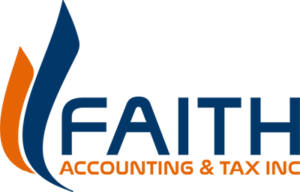Budgeting and controlling are essential activities in the existence of people and enterprises. They enable you to do the right things to manage your financial affairs, attain your financial objectives, and manage the unexpected. Below are some of the best practices that can be used to manage personal finances.
Embrace Budgeting
A budget is a guide to the amount of money you plan to earn and spend over a given period of time to meet your financial goals.
Crafting a Realistic Budget
First, it is recommended that you take a sheet of paper and write down the income and expenses for a month or two. This will help give a clear picture of the spending pattern. Then, you can divide your expenses and set up reasonable budgets for each category of expenses. Do not forget to include both fixed and variable costs; while the former does not change, the latter does.
Regular Monitoring and Adjustments
Your budget is not a straight jacket; it is a working document. Check your spending, review it with the budget, and adjust it if needed. Of course, there are cases when your financial position will force you to change the budget.
Setting SMART Financial Goals
Goals are the objectives and aims of your financial planning process. The articles also focus on the goals that should be Specific, Measurable, Achievable, Relevant, and Time-bound (SMART).
- Specificity: It is crucial to know what you want to gain in the long run and what you want out of the process.
- Measurability: Ensure that you set achievable targets that you can track to determine your progress. For instance, if you are saving for a down payment, determine the amount of money you want to save and by when.
- Attainability: Ensure that the goals set are realistic in terms of income, expenditures, and liabilities.
- Relevance: Make sure that your goals align with your values and the things that are important to you in life. What is your objective in relation to your financial situation?
- Time-bound: Set deadlines for your goals. It is recommended that you set a time frame for the whole process, as this will help you work harder and be more focused.
Building an Emergency Fund
An emergency fund is a form of saving that will help a person to be financially ready to deal with any mishap. The articles recommend that one should have an emergency fund that should be equal to 3-6 months of a family’s expenses.
Start Small, Build Gradually
It is recommended that you begin with a small portion of the money saved every month, regardless of whether it is a dollar. You should try to increase your contributions when you can, as it is a good pension plan.
Identify a Dedicated Savings Account
Open an emergency fund account with a high-yield savings account. This will help you avoid spending emergency money thinking it is your normal spending money and help you access it easily whenever there is an emergency.
Prioritize Replenishment
When you need to spend money from your emergency fund, it is advisable to replenish it as soon as possible.
Let Experts Handle Pesky paperwork!
Faith Accounting & Tax Inc. specializes in taking the stress out of accounting and taxes for businesses and individuals. Our experienced and reliable team offers various services, including bookkeeping, payroll, corporate and personal tax filing, and financial consulting. So, what are you waiting for? Contact Faith Accounting & Tax Inc. today for a free consultation!






